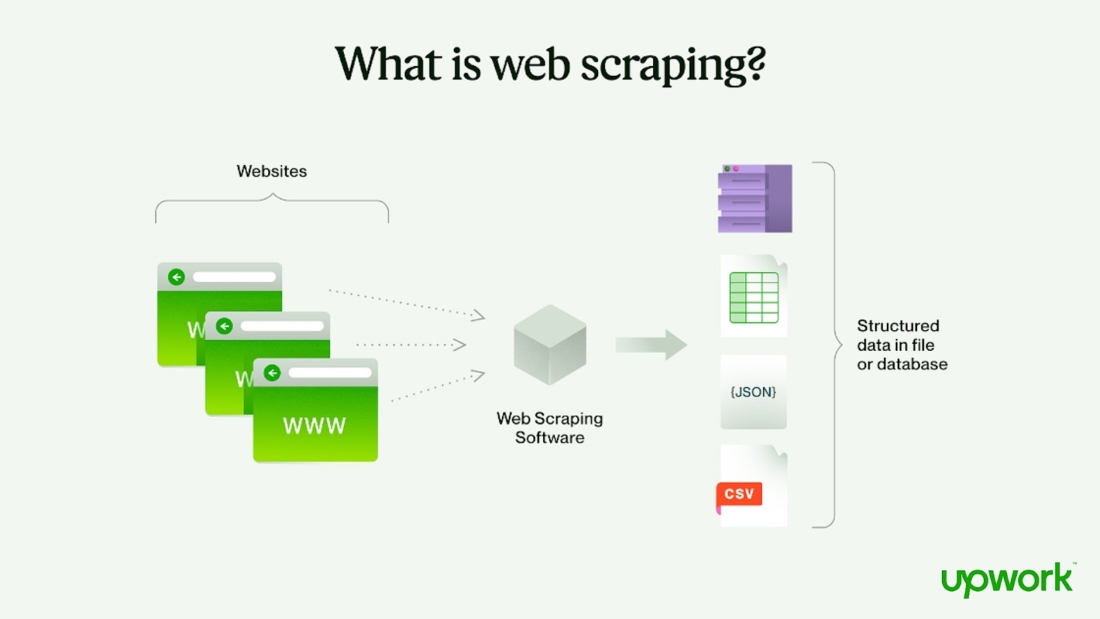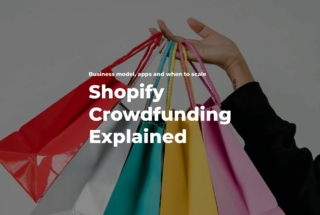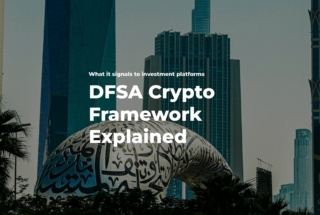Crowdfunding Data Scraping: A Threat or An Opportunity?
No time to read? Let AI give you a quick summary of this article.
The number of crowdfunding platforms is growing constantly and so is the size of the existing platforms like Kickstarter or Indiegogo. Everybody wants to know the secret sauce behind the success of these platforms and on these platforms.
Some of the largest crowdfunding platforms are often criticized, but are also used as benchmarks when it comes to starting a similar platform or hitting your funding goals as a business owner.
Data scraping offers a metric-driven approach to understanding the key factors that lead to crowdfunding success.
What you will learn in this post:
What is crowdfunding data scraping?
Crowdfunding data scraping is the practice of using software or scripts to harvest data from a crowdfunding platform to make more informed decisions regarding campaign management. It can also be used to gain insight into user demographics, target market trends, project feasibility and success rates.
This includes collecting and analyzing data such as total contributions, interested followers, number of successful projects, project creator performance, and various other metrics. Data scraping on crowdfunding platforms can be used to gain a better understanding of the performance of a crowdfunding campaign.

Crowdfunding data scraping: Kickstarter, Indiegogo, and other platforms
Agencies and individuals focus on the easily accessible, real-time or historical, large volumes of crowdfunding data that can be found on and extracted from the biggest crowdfunding platforms like Kickstarter2 and Indiegogo3.
These crowdfunding platforms host innovative projects in all states of the USA and all around the world in all possible fields, such as art, design, movies, technology, etc.They also cover all data about upcoming projects within the US.
A possibility of retrieving this data enables investors to access the existing and coming opportunities more accurately.
For project founders, it provides higher chances to assess the market and prepare the fundraising campaign in a way that increases the chances of getting the required funding.
Data collected on crowdfunding platforms can be used to:
- Analyze the projects to detect those that are getting more public support and can be potentially successful.
- Perform the investment analysis by using the most recent data.
- Follow projects within the same category to detect the most viable ones.
- Monitor projects within the same country or city.
- Monitor previous successful projects that still have significant potential for growth and thus can offer promising investing opportunities.
- Compare the overall number of crowdfunding campaigns in various locations.
- Monitor projects in the same niche in different states to pick the best opportunities.
- Follow your preferred projects and get notifications when they receive funding.
Crowdfunding platform data scraping services analyze and extract multiple data points4, the most common of which are:
- Project name
- Project description
- Project URL
- Objective
- Amount pledged
- Total backers
- Percentage funded
- Days left
Additionally, some services can scrape data that are normally hidden by crowdfunding platforms, such as failed, canceled, or suspended projects. This information may be useful for potential backers and fundraisers to access which platform offers more chances to achieve their aim.
Is it legal to scrape data on crowdfunding platforms?
Even though there is a common opinion that data scraping is illegal or operates in a so-called gray zone, it is incorrect. In the USA, there is no clear regulation on data scraping. In the legal battle brought by LinkedIn5, in an effort to prevent a rival company from scraping LinkedIn users’ data, the court claimed that scraping publicly available data is legal6 and is not a violation of the Computer Fraud and Abuse Act7 as long as scraped data:
- is not used for illegal purposes.
- Is not used to harm the scraped website’s business.
So, if the scraping activity is so intense that it can halt the website’s operations or the data is used to duplicate the website’s services, the website will have grounds for a lawsuit even though scraping is officially not prohibited.
According to the California Privacy Rights Act that t8o8ok effect on January 1, 20238, all the data that was made public by a person (e.g., personal data from such websites as LinkedIn, Facebook, etc.) is no longer protected and can be scraped. For now, this Act is valid in California only, but other states may follow its example.
The EU passed the Digital Services Act9 in 2022 with the aim of bringing all EU countries under the Digital Single Market.10 According to this act, the reproduction of any publicly available content is not illegal.
Scraping any copyrighted content is allowed by Articles 3 and 4 of the Directive 2019/790 on copyright and related rights in the Digital Single Market11 (DSM Directive). This directive permits data mining which means the use of any automated analytical technique. The received data can be used to generate information such as patterns, correlations, trends, etc. However, it is prohibited to republish copyrighted information on other websites.
However, web scraping involving personal data is considered illegal due to GDPR12. So, in the EU, all personal data is protected, and it doesn’t matter if a person made it public or where the data comes from. The following data is considered personal:
- Person’s name and surname
- Address
- Date of birth
- Passport number, social security number, national ID number
- Employment information
- Sex, gender
- Racial or ethnic origin
- Religious beliefs and political opinions
- Medical records
- Contact information such as phone number, email, etc.
- IP address
- Data collected by applications such as location collected by GPS, shopping preferences, and similar.
Is crowdfunding data scraping a threat or an opportunity?
It all depends. For investors, information received by the use of data scraping tools may offer some valuable insights into investment opportunities. For project owners, it may deliver some useful data on how to increase the chances of succeeding in raising the needed amount of funds on a specific platform.
For platform operators, data collection may feel a bit invasive and abusive because it allows external parties to gain advantage. However, some may just not care or be open about it.
Ultimately, crowdfunding data scraping doesn’t harm the website if it is performed ethically:
- Only the required data is scraped
- Personally identifiable information isn’t collected
- Scraped data is not exposed to public
- The website isn’t exhausted by too frequent pulls
And if you consider launching your own crowdinvesting platform, data scraping may provide you with a lot of information that will help you to understand the competition in the niche and market needs.
How to launch a crowdinvesting platform with LenderKit
LednerKit investment software can help you in setting up a crowdfunding platform with a marketing website to validate your ideas and test the market or apply for a regulatory sandbox.
Alternatively, if your aim is to create a unique investment platform with all the required integrations to automate operations and scale your business – LenderKit white-label investment software may also come in handy.
LenderKit proves an extensive set of out-of-box features that can be used off-the-shelf or they can be modified for your specific business needs.
To learn more about how LenderKit works13 and whether it’s the right fit for your investment business, you can contact our sales team to discuss the available options and schedule an online demo.

Article sources:
- Web Scraping 101: Basics and Examples
- Kickstarter
- Indiegogo
- How to Scrape Data from Kickstarter and Indiegogo Crowdfunding Websites
- HiQ Labs v. LinkedIn - Wikipedia
- Web scraping is legal, US appeals court reaffirms | TechCrunch
- The Supreme Court will hear its first big CFAA case | TechCrunch
- What is CPRA? Understanding California Privacy Rights Act - Securiti
- The Digital Services Act package | Shaping Europe’s digital future
- Carriages preview | Legislative Train Schedule
- Directive 2019/790 on copyright and related rights in the Digital Single Market
- General Data Protection Regulation (GDPR) – Legal Text
- Home - Welcome to the LenderKit demo!



